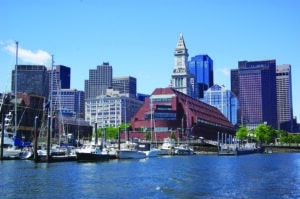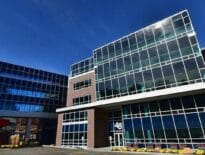Just weeks from his likely departure from Boston, Mayor Marty Walsh is asking city officials to use their brand-new powers to boost developers’ affordable housing fees by 42 percent.
The so-called “linkage” fees, paid by large developments calculated on a per-square-foot basis, go to fund affordable housing projects and workforce development programs.
The Boston Planning & Development Agency board will consider Walsh’s request at its Feb. 11 meeting. Walsh is waiting for the U.S. Senate to vote on his nomination to join the Biden administration as secretary of labor.
“It is critical that we are leveraging Boston’s development market to maximize funding for affordable housing and workforce training, while balancing the economic reality of COVID-19,” Walsh said in a statement. “By increasing Linkage requirements we will substantially increase revenue streams to fund the affordable housing and workforce training programs that will help our residents recover and thrive in a post-COVID economy.”
Walsh would like to see the linkage fees rise from $10.81 per square foot on developments over 100,000 square feet to $15.39 per square foot – $13 of which would fund affordable housing projects and $2.39 of which would fund workforce training. Since 2014, the program has generated $80 million for these initiatives, including $43.2 million in 2020 alone.
Linkage fees were last increased in 2018, by 8 percent.
The proposal comes just weeks after Beacon Hill approved a city home rule petition to directly control these linkage fees more frequently than once every three years based on inflation. The move was billed as a way to help the city better respond to changes in the real estate market.
Walsh and city councilors have been pushing for ways to tap Boston’s development boom for affordable housing construction for several years. A 2 percent city real estate transfer tax was pitched in 2019 but shot down by the state legislature amid debate over a similar statewide measure to fund climate change adaptation. Other ideas floated have included a “vacancy tax” on high-end properties owned by out-of-towners as concern that only a few locals were benefitting from the wealth created by the city’s real estate industry.




 |
| 


